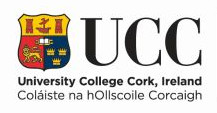Seán Ó Conaill: Strong arguments for remote sittings of the Dáil

Dr Seán Ó Conaill
Dr Seán Ó Conaill carries out a textual analysis of the Constitution to examine whether the Oireachtas can sit remotely.
Reports emerged today that advice has been issued to TDs and Senators which suggests that the Houses of the Oireachtas cannot sit remotely because the text of the Constitution requires the Dáil to sit in a physical place.
Conor Casey, Hilary Hogan and Ciarán Toland have already put forward an excellent summary of the legal position and a convincing argument on the UCC Constitution Project blog as to how remote sittings could be accommodated and highlight that even if this were later discovered to be problematic by a Court it is unlikely that there would be profound consequences.
In this blog post I want to focus instead on the idea that the use of the word place in the Constitution means that a physical sitting of the Dáil must take place and how the modern Constitution can be interpreted in a modern manner, with a particular reference to the Irish language text, rather than interpreting it in the originalist way in which the drafters may have intended.
Our constitution is of course a bilingual legal document with each provision having and English and Irish language version. The Irish language text of the Constitution is the authoritative text in the event that there is a conflict found between the English and Irish versions. Although the claim that the Irish text of the Constitution is a mere translation of English text is often made (including in some judgments of the Supreme Court) this claim is without foundation in the face of the evidence. Extensive works of scholarship such as Prof Mícheál Ó Cearúil’s study highlight how the Irish and English texts are not translations of each other and on many occasions the Irish text differs significantly from the English text.
The key provision is Article 15.1.3 which in English reads:
“The Houses of the Oireachtas shall sit in or near the City of Dublin or in such other place as they may from time to time determine.”
The Irish text of the same provision reads
“Is i gcathair Bhaile Átha cliath nó ar a cóngar, nó cibé áit eile ar a gcinnfid ó am go ham, a shuífid Tithe an Oireachtais.”
Prof Micheal Ó Cearúil offers the literal translation of this as being
“It is in the city of Dublin or in its vicinity, or wherever else they decide from time to time, that the Houses of the Oireachtas will sit.”
Neither text expressly mentions a physical place although it could be reasonable to assume that is what the drafters of the 1937 Constitution had in mind when they referred to place in this context.
The word ‘place’ (or places) appears nine times in the English language text although only two of these references refer to a space or area. Six of the references refer to the use of the word in the context of acting ‘in place’ of a person or office (in these examples the Irish text represents this as ‘in ionad’) and one use of the word refers to war taking ‘place’.
In the Irish text the word ‘áit’ is used twice and on both occasions refers to a space or area however ‘áit’ does not stand alone and instead forms part of a more complex phrase ‘cibé áit’.
In Article 15.1.3 the Irish word ‘áit’ is prefaced by the word ‘cibé’ which is generally understood to give a wide ambit to the word which follows eg ‘cibé áit’ would become ‘wherever’ and accordingly the focus on the word ‘place’ in the English text is shifted somewhat in the Irish text so as to focus more on the flexibility of wherever the Dáil wishes to sit in the phrase ‘cibé áit’.
In Article 31.8 which concerns meetings of the Council of State in English tells us that meetings can take place at such “times and places” as the President decides. The plural form here again hints at more flexibility as times and places could involve multiple venues and even times compared to Article 15.1.3 and thus could be used grounds for believing that 15.1.3 sets a stricter standard and accordingly should be interpreted narrowly. The Irish text however diverges and uses the same singular form of ‘cibé áit’ seen in Article 15.1.3 suggesting that there is no difference between the standard set in Article 15.1.3 and Article 31.8 and that the President.
The Constitution as drafted in 1937 has done a good job at standing the test of time but this has been achieved by virtue of Judges being willing to interpret the document as living and evolving document which in certain respects moves with the times.
The Courts have recognised that technology for example can change the way in which constitutional provisions are to be interpreted. Riordan v An Tánaiste [1998 ILRM 494], a case from November 1997 the Supreme Court acknowledged that modern technology could change how we understand constitutional provisions drafted in the 1930s. In this case it concerned the role of the Tánaiste standing in for the Taoiseach while the Taoiseach was overseas. The Court noted that “it is manifestly absurd to suggest that with modern communications and the speed of travel by aircraft, it is necessary for the Taoiseach to hand over his duties as head of government whenever he leaves these shores.”. In the context of Article 15.1.3 a valid question could be raised as to whether ‘place’ or ‘cibé áit’ could be understood to mean a virtual online environment particularly in light of the advances in technology unforeseen even in 1997.
Such discussions are not unique to Ireland. In the United States for example the use of a technology called the autopen by Presidents to sign bills remotely has raised questions as to its constitutionality. During the current coronavirus crisis many other jurisdictions have grappled with the issue of having legislatures sit and many have successfully used technology to facilitate the democratic process.
In the context of Dáil Éireann when we look at both the willingness of the Courts to interpret the Constitution as a living document which evolves over time and the flexibility offered by the Irish language text there are strong arguments to be made to facilitate remote sittings of Dáil Éireann at the time of a national crisis. Even if this was subsequently held to be constitutionally pragmatic the consequences most likely would not be dire.

- Dr Seán Ó Conaill teaches Dlí Bunreachtúil (Constitutional Law through the medium of Irish) at the School of Law at University College Cork. This article first appeared on the UCC Constitution Project blog.









